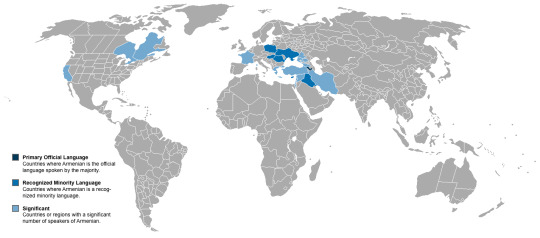23 | He/She | Variously Queer Indigenous and Disabled | Overly enthusiastic about learning too many languages
Don't wanna be here? Send us removal request.
Text

These words are the same (in spelling, not necessarily in tone) for both Xhosa and Zulu
English - Singular - Plural
Builder, constructor - Umakhi - Abakhi
Writer, author - Umbhali - Abahali
Killer, murderer - Umbulali - Ababulali
Singer- Umculi - Abaculi
Boy - Umfana - Abafana
Woman - Umfazi - Abafazi
Student - Umfundi - Abafundi
Teacher - Umfundisi - Abafundisi
Farmer, gardener - Umlimi - Abalimi
Cook - Umpheki - Abapheki
Beginner - Umqali - Abaqali
6 notes
·
View notes
Text
Constraints are an amazing tool that actually make you more creative. Instead of trying to give your language ALL OF THE FEATUREs, try putting more constraints on it.
515 notes
·
View notes
Text

common origins of suffering, euphoria, and ferret
substack
24K notes
·
View notes
Text
Does anyone have any Finnish or Karelian dictionary PDFs theyd be comfortable sharing with me? Need them for a linguistics uni project 😊
2 notes
·
View notes
Text
Around 10 years ago, a linguist with experience in Haudenosaunee languages, Karin Michelson, was invited by three Oneida women to assist them in going through the archives of one of the world’s best-known museums. The Oneida women went to the Smithsonian Institution as part of a program known as Breath of Life, which enables Onkwehón:we to bring linguistic works back to their home communities. Michelson, who co-authored a dictionary for the severely endangered Oneida language, came along to help them sift through the archives. She first forged connections with the Oneida when she was at the Centre for Research and Teaching of Native Languages at the University of Western Ontario. “I think I would not have stayed in school if I had not met some of the people I got to work with,” she said. She went on to teach at Harvard before finally settling into a role at the University of Buffalo. But Michelson, a non-Indigenous woman who grew up in Chateauguay in the 1950s and 60s, encountered something else in the Smithsonian’s archives that caught her interest and surprised her – an unpublished manuscript called Notes to a Mohawk Dictionary.
Continue Reading
Tagging @politicsofcanada
183 notes
·
View notes
Text
💼 vocabulaire métier - job vocabulary
(mf) - masculine & feminine noun
(m) - masculine noun
(f) - feminine noun
acteur (m), actrice (f) - actor, actress
architecte (mf) - architect
artiste (mf) - artist
avocat (m), avocate (f) - lawyer
banquier (m), banquière (f) - banker
boulanger (m), boulangère (f) - baker
charpentier (m), charpentière (f) - carpenter
caissier (m), caissière (f) - cashier
chef (m), cheffe (f) - chef/cook
comptable (mf) - accountant
chanteur (m), chanteuse (f) - singer
entraîneur (m), entraîneuse (f) - trainer/coach
électricien (m), électricienne (f) - electrician
écrivain (m), écrivaine (f) - writer/author
dentiste (mf) - dentist
ingénieur (m), ingénieure (f) - engineer
fermier (m), fermière (f) - farmer
pêcheur (m), pêcheuse (f) - fisherman
jardinier (m), jardinière (f) - garderner
juge (mf) - judge
médecin (m) / docteur (m) - doctor
mécanicien (m), mécanicienne (f) - mechanic
musicien (m), musicienne (f) - musician
serveur (m), serveuse (f) - waiter, waitress
infirmier (m), infirmière (f) - nurse
peintre (mf) - painter
pharmacien (m), pharmacienne (f) - pharamacist
photographe (mf) - photographer
pompier (m), pompière (f) - firefighter
pilote (mf) - pilot
plombier (m), plombière (f) - plumber
policier (m), policière (f) - police officer
professeur (m), professeure (f) - teacher
thérapeute (mf) - therapist
vétérinaire (mf) - veterinarian
416 notes
·
View notes
Text
Bad Weather Swedish Vocab

Ett oväder - A storm Ett dåligt väder - A bad weather
Regn - Rain Hagel - Hail Snö - Snow Vind - Wind
En regnstorm - A rainstorm En snöstorm - A snowstorm En stormvind - A storm wind
Varför måste det snöa idag? - Why does it have to snow today? Det haglar ute! - It’s hailing outside!
69 notes
·
View notes
Text
Le futur proche & le futur simple
1. Le futur proche
-> for immediate or certain actions
je vais
tu vas
il/elle/on va + verbe infinitif
nous allons
vous allez
ils/elles vont
Examples:
Je vais aller en France.
Je ne vais pas aller en France.
Tu vas manger ce croissant.
Tu ne vas pas manger ce croissant.
Vous allez écouter attentivement.
Vous n'allez pas écouter attentivement.
Examples of "verbes pronominaux":
Je vais me doucher en 5 minutes.
Le soir, ils vont se coucher vers 22 heures.
Vous allez vous coiffer tous les jours.
2. Le futur simple
-> for hypothetical actions in the near or far future; predictions, dreams, promises, weather forecasts; after "quand", "lorsque", and "dès que"
je + ai
tu + as
il/elle + verbe infinitif + a
nous + ons
vous + ez
ils/elles + ont
Some irregular verbs:
être (serai, seras, sera, serons, serez, seront)
avoir (aurai, auras, aura, aurons, aurez, auront)
faire (ferai, feras, fera, ferons, ferez, feront)
voir (verrai, verras, verra, verrons, verrez, verront)
aller (irai, iras, ira, irons, irez, iront)
Examples:
J'irai en France.
Je n'irai pas en France.
Tu mangeras ce croissant.
Tu ne mangeras pas ce croissant.
Vous écouterez attentivement.
Vous n'écouterez pas attentivement.
Examples of "verbes pronominaux":
Je me doucherai en 5 minutes.
Le soir, ils se coucheront vers 22 heures.
Vous vous coifferez tous les jours.
331 notes
·
View notes
Text
English vocab for level B2 and higher #6
impious: showing no respect, especially for God or religion
poignant: causing or having a very sharp feeling of sadness
stupefying: making someone unable to think clearly, usually because they are extremely tired or bored, or have taken drugs; very surprising or shocking
forthwith: immediately
citadel: a strong castle in or near a city, where people can shelter from danger, especially during a war
vault: a type of arch that supports a roof or ceiling, especially in a church or public building, or a ceiling or roof supported by several of these arches; a room, especially in a bank, with thick walls and a strong door, used to store money or valuable things in safe conditions; a room under a church or a small building in a cemetery where dead bodies are buried
to seep: to move or spread slowly out of a hole or through something
smattering: a very small amount or number
masonry: the bricks and pieces of stone that are used to make a building; the skill of building with brick and stone
ooze: a thick brown liquid made of earth and water, found at the bottom of a river or lake
ingenuous: honest, sincere, and trusting, sometimes in a way that seems silly
to palpitate: (of the heart) to beat very fast and in a way that is not regular
to embark: to go onto a ship or an aircraft; to put goods or passengers onto a ship, aircraft, or train
baleful: threatening to do something bad or to hurt someone
non-committal: not involving or revealing commitment to any particular opinion or course of action
tottering: walking with difficulty in a way that looks as if you are about to fall; shaking and moving from side to side, and likely to fall
lapsed: no longer involved in an activity or organization; no longer being continued or paid
to induce: to persuade someone to do something; to cause something to happen
chasm: a very deep, narrow opening in rock, ice, or the ground; a very large difference between two opinions or groups of people
complement: a number of people or things that makes something complete
227 notes
·
View notes
Text
Greek Youtube Channels
Άκης Πετρετζικης - Cooking
Ευτύχης Μπλέτσας - Travel
Easy Greek - Language
Do You Speak Greek - Language
i Mikri Ollandeza - Vlog, Lifestyle
Evelina Nikoliza - Vlog, Lifestyle
Greek Cooking Made Easy - Cooking
Linguatree - Culture, Language
Helinika - Culture, History
Learn Greek with Zoi - Language
Learn Greek with Katerina - Language
118 notes
·
View notes
Text
Navajo Phonology: Consonants
Part 2/2 - Navigate to my "Grammar Posts" page to see Part 1!
This does not cover every possible way of expressing sounds, as regional varieties are very diverse. This is just a general guide based on my experiences with my family’s language. This is also not an official way of grouping sounds, its just how I organized this post.
Consonant Group 1
These are ones that are identical/similar to the Latin characters they are written with in English. Some consonants are written with more than one character.
Ch = [tʃ] - Similar to church
J = [dʒ] - Similar to jam, though at times its less voiced
L = [l] - Similar to love
M = [m] - Similar to mom
N = [n] - Similar to no
S = [s] - Similar to sun
Sh = [ʃ] - Similar to shoe
W = [w] - Similar to win
Y = [j] - Similar to yes
Z = [z] - Similar to zoo
Consonant Group 2
These are ones that have sounds essentially found in English, but the way they are written does not align exactly with English.
B = [p] - Similar to spot
D = [t] - Similar to stop
Dz = [ts] or [dz] - Similar to hands
G = [k] - Similar to sky
Hw = [hʷ] - Similar to which
Kw = [kʷʼ] - Similar to quick
Zh = [ʒ] - Similar to pleasure
Consonant Group 3
These are the remaining letters/sounds that are in English, but in Navajo they are more aspirated and stronger.
K = [kʰ]
T = [tʰ]
Ts = [tsʰ]
Consonant Group 4
These are ones that are not easily found in English, so may take bit of extra effort to learn.
' = [ʔ] - The glottal stop
Gh = [ɣ] or [ɰ] - Sometimes softens to be like a [w] or semi-vowel
Ł = [ɬ] - Voiceless Alveolar Lateral Fricative
Dl = [tl] or [tɬ]
Tł = [tɬ] - Some may aspirate this sound as well.
Consonant Group 5
This group consists of the Navajo ejective/glottalized consonants.
Ch' = [tʃʼ]
K' = [k']
T' = [t']
Tł' = [tɬʼ] - This is considered the hardest sound in Navajo!
Ts' = [ts']
Consonant Group 6
This consists of only H, which has two different pronunciations.
H at the beginning of a word/syllable = [x]
H at the end of a word/syllable = [h]
If an H comes after the letter S, but is not meant to be the sh digraph, it is written as sx.
18 notes
·
View notes
Text
french: prepositions of place
(trying to get these memorized! corrections appreciated. also if you're wondering about à + dans, i'm working on learning the difference ;) so hold tight)
à côté de - next to, beside
à droite de - to the right of
à gauche de - to the left of
au-delà de - beyond
au-dessous de - below
au-dessus de - above
à travers - through
derrière - behind
devant - in front of
en face de - across
hors de - outside of
loin de - far
près de - near
sous - under
sur - on (sp. sobre)
vers - towards
71 notes
·
View notes
Text
Revitalizing the Western Armenian language in Los Angeles
The Western Armenian language is endangered, but now a new generation of speakers is learning it in Los Angeles!

Armenian is a unique language in that it has an entire branch of the Indo-European language family to itself:
Also, isn’t the Armenian alphabet so cool??

(If you want to learn more about the world’s languages, you’re in the right place! Hit Follow for more!)
183 notes
·
View notes
Text
Zulu is a prodrop language, since verbs already have the pronoun prefix in them you don’t need to put the pronoun separately in the sentence.
As part of a verb the pronoun prefixes are:
Ngi - I
U - You (low tone)
U - he/she (high tone)
Si - we
Ni - you all
Ba - they
And then the actual pronouns that I have yet to ever see used in front of the verb but probably should try to start remembering for other contexts:
Mina - I
Wena - You
Yena - He/she
Thina - We
Nina - You all
Bona - They
*As a side note for the few of you that will read this the subject prefix (a.k.a. subject concord) needs to agree with the case of the subject so while I’ve listed the key ones used for people there are several more I have not included here for the cases that don’t involve people
14 notes
·
View notes


